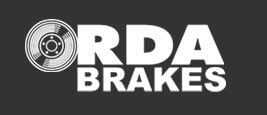Call us today for all your parts needs! 07 4779 7866
TOWNSVILLE'S LEADING SUPPLIER OF BRAKE & CLUTCH PARTS
Currajong Brake Parts & Service has been restoring brake and clutch systems in the Townsville area since 1998. We're a locally owned and operated business, and we take pride in offering our customers quality parts, workmanship and advice.
Originally focused on simply brake and clutch systems, in recent years our business has expanded to include selling parts for other areas of your vehicle, such as steering and suspension. This is part of our aim to give you the most value and tailored customer service, along with the most competitive prices in Central Queensland.
FREQUENTLY ASKED QUESTIONS
-
WHY CHANGE BRAKE FLUID REGULARLY?
Here’s a safety tip on brakes. You’ve probably read the advice on brake fluid containers to change your brake fluid every 12 to 18 months and perhaps you’ve thought this is simply so brake fluid manufacturers can make more money, we believe it is very important you change your brake fluid every 12 to 18 months. You see, brake fluid is “hydroscopic” meaning it absorbs moisture from the atmosphere. If that moisture is allowed to build up, it reduces the boiling point of the fluid and can cause your cylinders to corrode and pistons to seize up – so for safety's sake – change your brake fluid regularly.
-
WHY SHOULD WHEEL CYLINDERS BE REPLACED WHEN FITTING SHOES?
Although your wheel cylinders may not be leaking when you replace your worn out shoes, it is normal practice to replace the wheel cylinders at the same time. Let me explain why. As your brake shoes wear, the pistons in the wheel cylinders move outwards to take up the wear in the shoes. As the wheel cylinders are one of the lowest points of a braking system, any moisture built up in the fluid system lies on the bottom of the cylinder and corrodes the wheel cylinder. This is also a great place for any contaminants in the fluid to settle. When you fit your new brake shoes, the wheel cylinder pistons must retract back into the cylinder to compensate for the brake lining thickness and thus placing the wheel cylinder seals into the contaminated and corroded area. Within a short amount of time, the cylinders usually begin to leak over your new brake shoes rendering them ineffective and requiring replacement again. So it pays to do a proper job in the first place.
-
RUNNING IN NEW DISC PADS
You may have heard of the practice of “bedding in your brakes” – perhaps you’ve done it yourself over the years. Well, disc pad technology has changed and with asbestos-free pads, the practice of riding your brakes and over-heating the new brake pads to bed them in is NOT a great idea – in fact you can actually damage the bonding agents and render the friction material useless. Disc pads are like an engine and have to be run in. Avoid excessive braking in the first 500kms.and you’ll get longer life, better performance and less noise from your brake pads.
-
DIAGNOSING BRAKE PROBLEMS
The way professional brake mechanics diagnose a poor brake pedal is a method of isolation. Special brake clamps are pinched onto your flexible brake hoses to isolate components. This method will tell you exactly where the problem is.
ABOUT
Currajong Brake Parts & Service is Townsville's brake and clutch expert. With services from disc machining to overhauling your hydraulic cylinders. Additionally, we provide a range of parts of other areas of your vehicle such as steering racks, shock absorbers and more. Call us today for a quote.
CONTACT INFORMATION
- Mon - Thu
- -
- Friday
- -
- Sat - Sun
- Closed









